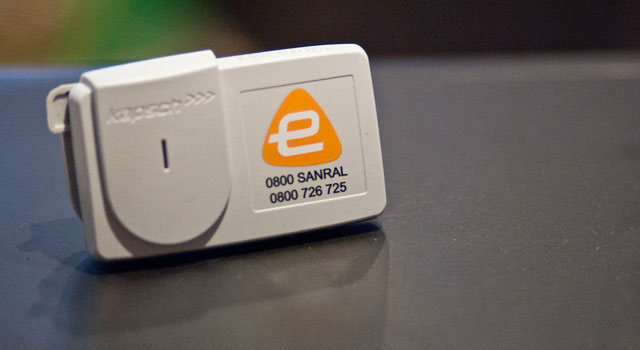
Roads agency Sanral has allegedly started texting messages to Gauteng drivers who have shunned paying their e-toll fees, telling them to pay up or face action, an anti-tolls group said on Friday.
The Opposition to Urban Tolling Alliance (Outa) disclosed that Sanral has started sending SMS messages to drivers, listing their current outstanding balance and an indication of the 60% discount they will receive if they settle.
According to Outa, the SMS then reads: “Failure to settle outstanding e-toll will result in a loss of this discount, vehicle listing and collection action being commenced against you for the full amount due.”
Outa chairman Wayne Duvenage phoned the Sanral call centre to find out what “vehicle listing” and “collection action” means, but said he received no clear indication from three different staff members.
“This is clearly an intimidation tactic, but what’s more, the fact that Sanral are sending questionable unsolicited messages to people, without an ‘opt-out’ option from receiving further intimidation messages, could be deemed unlawful. There is no qualification within these messages that this debt belongs to a specific person or vehicle registration number.”
Outa has been a thorn in Sanral’s side since its formation in 2012 with the aim of blocking e-tolls.
It all began when the Gauteng freeway improvement project (GFIP) was launched in 2007 and, after several court challenges to halt the project, e-tolls eventually went live at the end of 2013.
After conducting a review of the failing system in 2014, Gauteng Premier David Makhura said in January 2015 an official review related to affordability, sustainability and administration problems was needed.
By May 2015, Deputy President Cyril Ramaphosa fast-tracked the process, announcing that e-toll fees for light motor vehicles will be reduced from 58c/km to 30c/km (with caps on payment), while discounting outstanding fees by 60%.
Outa didn’t buy it. “The only positive e-tolling outcome would be if government scraps the system and comes up with funding through the national fiscus, fuel levy and other mechanisms,” it said at the time.
Outa has encouraged drivers not to pay their fees at all and has set up a legal entity to support motorists who face court action.
In December, Outa claimed that a gazette published by the transport department was an attempt by Sanral to force e-toll payments.
While this gazette seeks to amend the Administrative Adjudication of Road Traffic Offences (Aarto) Act, Duvenage believes it is an attempt to make it easier to include e-toll infringements in the adjudication process by the Road Traffic Infringement Agency.
The group submitted over 100 000 comments to explain why the gazette should not become law, Outa said.
Sanral spokesman Vusi Mona hit back, saying that connecting the amendments in the gazette with e-tolling is a “misjudgment” and that “there is no attempt to introduce any new provisions”.
Regarding the text messages, Outa said its legal team is investigating the possibility that Sanral or its agents might be transgressing section 45 of the Electronic Communications and Transactions Act by sending unsolicited communications to persons without giving them the option to opt out, or being able to confirm where it obtained their personal details. — Fin24




